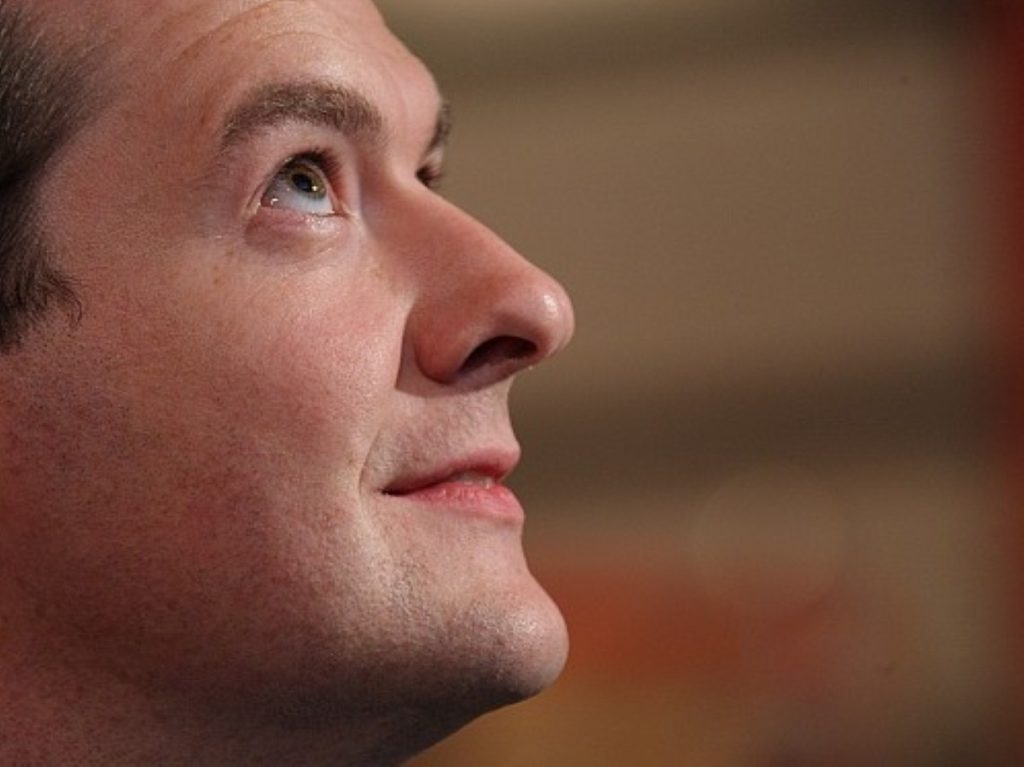Budget 2013: Osborne tests Einstein’s definition of madness
George Osborne is set to test Albert Einstein's definition of insanity as "doing the same thing over and over again and expecting different results" when he delivers his fourth Budget later today.
The chancellor is unlikely to budge on his economic strategy despite strong signs the UK has entered a period of economic stagnation which could last for a decade.
Despite falling over the first two years of this parliament, the deficit is now rising again by approximately £12 billion a year.
Forecasts of growth, which were already slashed three months ago by the Office of Budget Responsibility (OBR), are likely to be reduced for this year from 1.2% to 0.7%, reflecting the 0.3% contraction at the end of 2012 and the slow start to 2013.


The chancellor is planning a £2.5 billion boost to capital spending, but his decision to fund the increase by cuts in departmental budgets rather than extra borrowing led some economists to predict it would contribute just 0.06% to GDP.
"Spending just £2.5 billion a year more on infrastructure projects will boost growth by a measly 0.06%," TUC general secretary Frances O'Grady commented.
"Worse still, funding it through departmental spending cuts will mean further reductions in public services.
"With interest rates negative in real terms, the chancellor has the perfect opportunity to invest in Britain's future, rather than raiding departmental budgets to cover his failed economic strategy."
The boost will be funded by £2.5 billion more cuts in Whitehall. The NHS, schools, overseas aid and HM Revenue and Customs (HMRC) will be protected indefinitely while local government and the police will be shielded for one year.
All other departments face one per cent savings on their day-to-day budgets for the next two years on top of the cuts imposed by previous budgets and the autumn statements.
Corporation tax is likely to be cut again, having already been slashed from 28% to 21%. Osborne will be tempted to meet the symbolic 20% mark, which will cost £500 million.
The big giveaway is expected to be another increase in the personal tax allowance from £9,440 – probably up to the Liberal Democrat target of £10,000, a move which would cost £2 billion a year.
There could even be a one-penny cut in income tax, which would cost £4 billion.
"The Budget must act to kickstart our flatlining economy and help people struggling with the rising cost of living right now," Cathy Jamieson, shadow Treasury minister, said.
"The tax cut for millionaires should be cancelled and people on middle and low incomes should be given a tax cut instead – for instance through a temporary VAT cut and by bringing back a lower 10p starting rate of tax."
Osborne has been subject to increasing rumours about his role over recent months, especially after the Eastleigh by-election saw the Tories drop to third place.
Right-wing backbenchers are hoping for one of their own, such as John Redwood, to take the position, but more senior figures are lobbying for a more convincing replacement, such as foreign secretary William Hague.
Neither option is likely to occur. The chancellor remains David Cameron's close friend and political ally. Even with the economy in the doldrums and Labour cementing a double-digit lead, he is unlikely to cut off his chancellor before the 2015 general election.
Last year's Budget proved catastrophic for Osborne, who had to promptly U-turn on many of policies he announced.
His reputation barely survived that incident, which some insiders put down to a failure to 'stress-test' policies ahead of the Budget's publication.
Others said Osborne had left the press with nothing to focus on but the negatives after he leaked many of the better policies ahead of the announcement. That trend ended this year, with comparatively little information emerging about the document.

